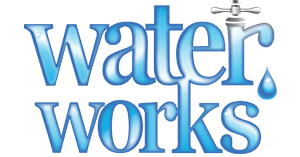Enhancing Water Quality and Minimizing Hardness in Colorado Homes through Water Softening Filtration Systems
This case study explores the implementation and effectiveness of water-softening filtration systems in Colorado homes to address the challenges associated with hard water. Colorado’s water sources often contain high levels of dissolved minerals, primarily calcium and magnesium, resulting in hard water. The case study aims to demonstrate how water-softening filtration systems can improve water quality, prevent scale buildup, and provide numerous benefits for residents in Colorado.
Background:
Colorado’s water sources, including groundwater and surface water, are known for their elevated mineral content. When water contains excessive amounts of calcium and magnesium, it is considered hard water. Hard water can lead to several issues, including scale buildup in plumbing fixtures and appliances, reduced soap and detergent efficiency, and potential damage to water-using equipment. These challenges prompted the exploration of water-softening filtration systems as a comprehensive solution.
Problem Identification:
The focus of this case study is to address the water quality issues caused by hard water in Colorado homes. Scale buildup, appliance inefficiency, increased energy consumption, and reduced effectiveness of cleaning agents were identified as common problems resulting from hard water. The objective was to implement water-softening filtration systems to alleviate these issues and enhance the overall water quality for residents.
Implementation Strategy:
Water Testing and Analysis: A comprehensive water testing and analysis were conducted in various Colorado homes to determine the extent of hardness and identify any additional water quality concerns. The analysis helped identify the appropriate water-softening filtration systems and tailor the solution to meet specific needs.
System Selection and Customization: Based on the water analysis results, suitable water-softening filtration systems were selected for each home. The chosen systems incorporated technologies such as ion exchange, salt-based or salt-free systems, or electronic descaling depending on the severity of hardness and specific requirements. Customization ensured the system’s capacity matched the household’s water demand.
Professional Installation: Certified professionals with expertise in water treatment systems were engaged to install the water-softening filtration systems. Proper system placement, connection to the water supply, and integration with existing plumbing infrastructure were ensured. Installation compliance with local plumbing codes and regulations was followed to guarantee safe and efficient operation.
Community Education: Educational initiatives were undertaken to inform Colorado residents about the benefits of water-softening filtration systems. Workshops, informational materials, and online resources were made available to homeowners to understand the impacts of hard water, the functioning of water-softening systems, and the importance of regular maintenance.
Ongoing Maintenance and Support: Homeowners were provided with comprehensive maintenance guidelines and support to ensure optimal system performance. Routine maintenance, such as resin bed cleaning or replacement, brine tank checks, and salt replenishment, was conducted. Homeowners were also educated on water usage best practices to maximize the benefits of the water-softening filtration systems.
Results and Benefits:
Improved Water Quality: The implementation of water-softening filtration systems significantly improved water quality in Colorado homes. The systems effectively reduced the hardness caused by calcium and magnesium, resulting in softened water that prevented scale buildup and provided a more enjoyable bathing and cleaning experience.
Extended Appliance Lifespan: By reducing the presence of mineral deposits, water-softening systems helped prolong the lifespan of plumbing fixtures, appliances, and water-using equipment. Appliances such as dishwashers, washing machines, and water heaters operated more efficiently, reducing the need for repairs or replacements.
Increased Energy Efficiency: Water softening filtration systems contributed to enhanced energy efficiency. Appliances operating with softened water required less energy to reach desired temperatures, resulting in reduced energy consumption and lower utility bills.
Cost Savings: Colorado homeowners experienced cost savings in several aspects. Reduced scale buildup resulted in less frequent cleaning and decreased usage of cleaning agents. The extended lifespan of appliances and plumbing infrastructure reduced maintenance and replacement costs. Furthermore, water-softening systems eliminated the need for water-softening additives, leading to additional savings over time.
Conclusion:
This case study demonstrates the successful implementation of water-softening filtration systems in Colorado homes. By addressing the challenges posed by hard water, residents experienced improved water quality, extended appliance lifespan, increased energy efficiency, and cost savings. Water softening systems positively impacted the overall water experience, cleanliness, and maintenance requirements, contributing to enhanced living standards for Colorado residents.
